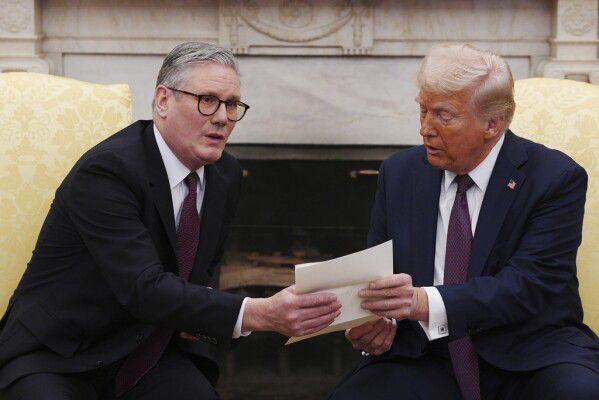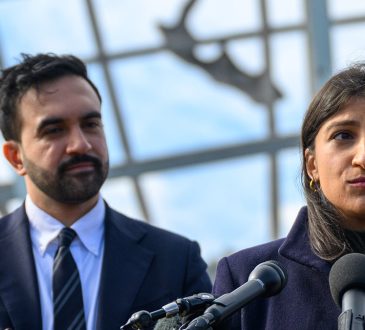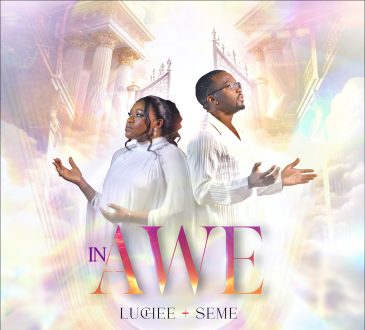Oval Office Tensions Flare as Vance Stands Firm on Free Speech Critique—Starmer Fires Back in Diplomatic Showdown

In what can only be described as a diplomatic showdown with a side of cheeky tension, Vice President JD Vance stood his ground on his controversial remarks about Britain’s free speech environment—just feet away from British Prime Minister Keir Starmer during a high-stakes Oval Office meeting. The scene was set, the stakes were high, and the air was thick with unspoken British politeness and American bluntness. It was, as one might say, awkwardly brilliant.

The drama unfolded as President Donald Trump hosted Starmer for talks on a range of issues, including the ongoing divide between the U.S. and Europe over Ukraine peace negotiations. But it was Vance’s unwavering stance on free speech that stole the show. The Vice President, known for his no-nonsense rhetoric, doubled down on his earlier comments at the Munich Security Conference, where he boldly declared that free speech was “in retreat” in Europe.
“To many of us on the other side of the Atlantic, it looks more and more like old entrenched interests hiding behind ugly Soviet-era words like misinformation and disinformation,” Vance had said, earning both applause and raised eyebrows. “They simply don’t like the idea that someone with an alternative viewpoint might express a different opinion or, God forbid, vote a different way—or even worse, win an election.”
Fast forward to the Oval Office, where Vance, standing shoulder-to-shoulder with Trump and Starmer, didn’t miss a beat. “I said what I said,” Vance declared, his tone as unapologetic as ever. “We have a special relationship with our friends in the U.K. and Europe, but we also know there have been infringements on free speech that affect not just the British but American tech companies and, by extension, American citizens. That’s something we’ll talk about today at lunch.”

Cue the awkward silence. Starmer, seated just a few feet away, couldn’t resist jumping in. “We’ve had free speech for a very, very long time in the United Kingdom, and it will last for a very, very long time,” the Labour leader retorted, his British stiff upper lip firmly in place. “Certainly, we wouldn’t want to reach across and regulate U.S. citizens, and we don’t—that’s absolutely right. But in relation to free speech in the U.K., I’m really proud of that—our history there.”
The exchange was a masterclass in diplomatic tension, with Vance standing firm on his critique of what he called “Soviet-style” censorship in Europe, while Starmer defended Britain’s centuries-old tradition of free expression. The Vice President even brought up the case of a British army veteran convicted of breaching a safe zone around an abortion clinic—where he was silently praying—as evidence of what he sees as overreach.
Trump, ever the maestro of high-stakes meetings, seemed to relish the moment, his signature grin hinting at his amusement. The President, who has long championed free speech and railed against what he calls “cancel culture,” appeared to side with Vance, nodding along as his VP delivered his impassioned defense of American values.

The meeting underscored the growing divide between the U.S. and Europe on issues ranging from free speech to foreign policy. While the Trump administration has taken a hardline stance against what it sees as creeping censorship, European leaders like Starmer have pushed back, insisting that their approach to regulation is about balance, not suppression.
As the two sides sat down for lunch, one couldn’t help but wonder: Would the conversation turn to lighter topics, like the weather or cricket? Or would Vance and Starmer continue their verbal sparring over the soup course? Either way, one thing was clear: the Trump administration isn’t backing down on its commitment to free speech—no matter how awkward the moment might be.
In the end, the Oval Office encounter was a reminder that, in the world of diplomacy, sometimes the most interesting conversations happen when someone has the courage to say what everyone else is thinking—even if it makes things a little uncomfortable. And if there’s one thing the Trump administration knows how to do, it’s shake things up.
So, here’s to free speech, awkward moments, and the enduring special relationship between the U.S. and the U.K.—even when it’s a little rocky. Cheers!




